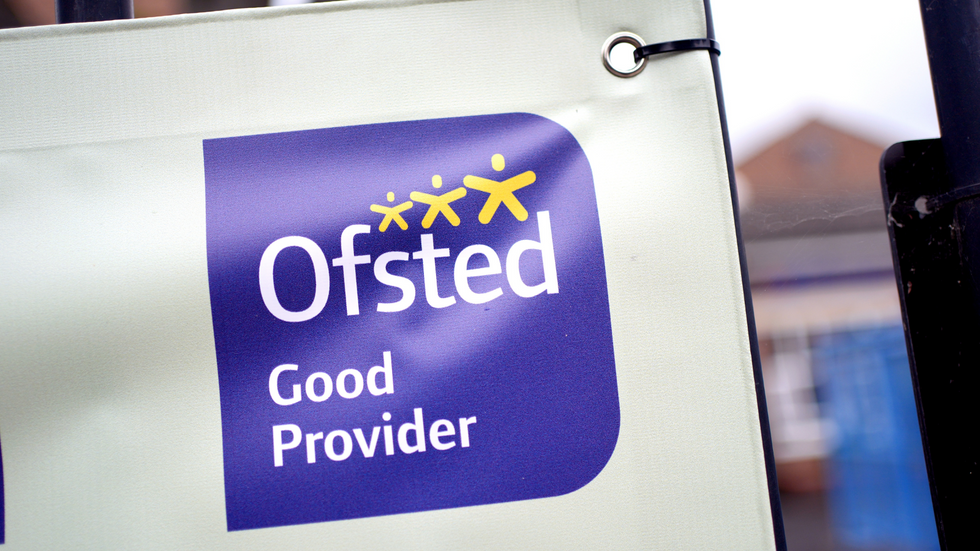Ofsted new report cards slammed as ‘rehash’ of previous ‘dangerous’ system – ‘Bewildering for teachers.. never mind the parents!’
Ofsted has proposed replacing its controversial four-point school rating system with a new colour-coded five-point scale, sparking immediate criticism from education leaders.
The new system would see schools receive ratings ranging from red “causing concern” to orange “attention needed”, followed by three green shades of “secure”, “strong” and “exemplary” for each area of practice.
The change comes after the government announced last year that the current headline grades of outstanding, good, requires improvement and inadequate would be scrapped.
The criticism comes after Ruth Perry took her own life when her school was downgraded from “outstanding” to “inadequate”, with a coroner later ruling the Ofsted inspection “contributed” to her death.

Professor Julia Waters, sister of the late headteacher Perry, has criticised the new proposals as retaining “many of the dangerous features of the previous system”.
She warned the changes could introduce “potential new risks to the wellbeing of teachers and headteachers”.
Waters dismissed the new ratings as merely feeding the single-word judgments “through an online thesaurus”.
She expressed particular concern about elements of the report card design being “ill-thought-through and potentially dangerous”.
“My sister Ruth Perry died as the result of a rude and intimidating Ofsted inspection, and its disproportionate consequences on her and her school,” Waters said.
“It is two years since Ruth’s death, and a year since Sir Martyn Oliver took charge of Ofsted. Ofsted says it has listened, but it still does not appear to have adequately learned.”
LATEST DEVELOPMENTS:
- Former Ofsted inspector promises ‘we are not demons’ as new system to be implemented
- Primary school headteacher who called pupil ‘fat slug’ avoids ban
- Staff ‘tortured’ special needs pupils in ‘calming rooms’ leaving them in their own urine
“I am worried that this proposal is a rehash of the discredited and dangerous system it is meant to replace,” she added.
Schools will receive ratings across at least eight different areas of provision, accompanied by brief summaries from inspectors.
The proposed evaluation areas include leadership and governance, curriculum, developing teaching, achievement, behaviour and attitudes, attendance, personal development and wellbeing, and inclusion.
Schools with early years provision or sixth form facilities would receive separate grades for these areas.
Safeguarding would not fall within the five-point scale but would instead be assessed as either “met” or “not met”.
The new system will place particular emphasis on how schools support vulnerable and disadvantaged children, including those with special educational needs and disabilities (Send), as part of a renewed focus on inclusion.
Sir Martyn Oliver, chief inspector of Ofsted, said Ruth Perry’s death has been on his mind “ever since it happened”.
He defended the new system as “far better balanced, more realistic and a fairer picture of all of a school’s strengths and areas for improvement”.
The changes would be “a bit like a child’s school report card”, he explained, highlighting both schools’ excellence and areas needing improvement.
Ofsted added that the new approach would allow inspectors to “highlight poor practice with more precision – pointing laser-like to specific issues, not shining a floodlight on the whole provider”.
Education leaders have joined in criticising the proposals, with Paul Whiteman, general secretary of school leaders union NAHT, saying they “suggest an inspectorate determined to hold on to a model of inspection that is long past its sell-by date”.
Pepe Di’Iasio, general secretary of the Association of School and College Leaders (ASCL), offered an even stronger rebuke.

He said the proposed school report cards “appear to be even worse than the single-word judgments they replace”.
Di’Iasio added the new format will be, “bewildering for teachers and leaders, never mind the parents whose choices these reports are supposedly intended to guide”.
Under the new proposals, all schools identified as needing improvement will receive monitoring calls and visits to ensure timely action on raising standards.
This includes any school receiving an “attention needed” grade in any evaluation area.
Ofsted will end ungraded inspections of state schools, meaning every school will face a full, graded inspection during routine visits.
The inspectorate will also incorporate more contextual data into its assessments, including learner characteristics, absence and attendance figures, and local area demographics.

